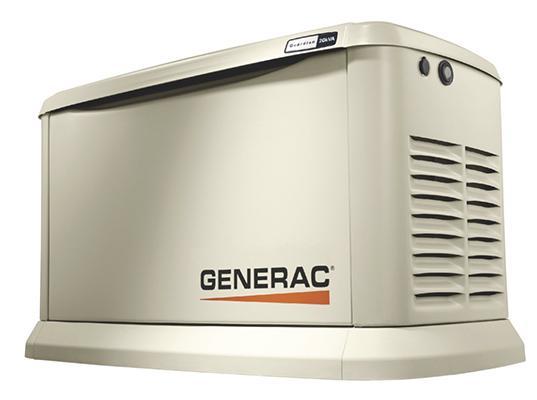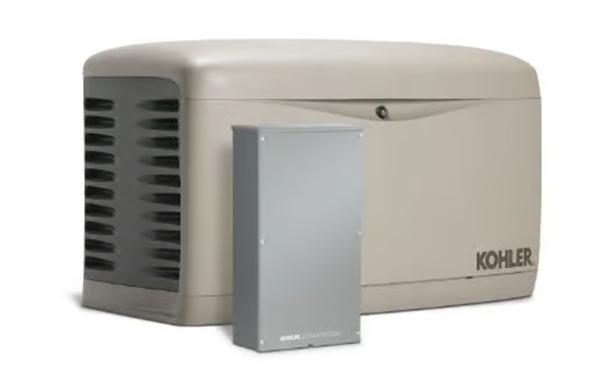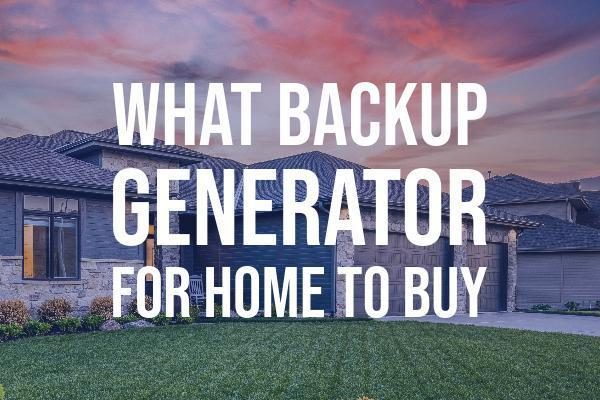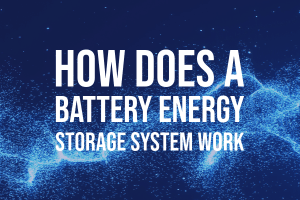Choosing the right backup generator for your home depends on a variety of factors, including your power needs (the number of appliances and electronics you want to power), the size of your home, your budget, and the type of fuel you prefer to use.
As a general rule of thumb, a 22 kW generator is often considered suitable for most medium-sized homes, while a larger home with a higher power demand may require a generator with a capacity of 30 kW or more.

This blog will help you determine what home generator is right for you, the cost of home generators, where to buy a home generator, and the best home generator brands.
Chat with Colorado Standby to learn more, or click here to browse our selection of home generators.
What Size Generator Do I Need for My House?
There are two main factors when it comes to determining what size generator you need for your house: panel size and how much you want to run on your home generator during a power outage (you may not need to run all of your appliances). Fuel type is also an aspect to consider.
Home Electrical Panel Size
The panel size for a house refers to the electrical panel or circuit breaker box that controls the flow of electricity to your home’s electrical system. The panel size is typically measured by the number of circuit breaker slots it has, along with the rated amps it can pass through.
The most common panel sizes for residential homes are 100 amps, 150 amps, and 200 amps. The size of the panel you need depends on the size of your home and the number of electrical appliances and devices you have. Typically, to fully back up a 200-amp service, it takes a 20+kw home generator and a 200-amp automatic transfer switch. Now, this does not mean that the generator can also provide 200 amps, but it can power most of your needs.

Appliances a Home Generator Can Run
A 20 kW home generator can run a variety of household appliances and electronics simultaneously. The specific appliances and devices that can be powered by a 20 kW generator depend on the wattage requirements of each item, but generally speaking, a 20 kW generator should be able to run a combination of most of the following items at the same time:
- Heating and cooling systems (including A/C and furnaces (5,000 to 7,000 watts)
- Refrigerator (600 to 800 watts)
- Freezer (500 to 700 watts)
- Electric water heater (4,500 to 5,500 watts)
- Well pump (1,000 to 2,500 watts)
- Sump pump (500 to 1,500 watts)
- Washer (1,000 to 2,500 watts)
- Dryer (5,000 to 6,000 watts)
- Dishwasher (1,200 to 1,500 watts)
- Electric range or oven (3,000 to 5,000 watts)
- Microwave (800 to 1,500 watts)
- Coffee maker (600 to 1,200 watts)
- Two-slice toaster (800 to 1,500 watts)
- Television and entertainment systems (100 to 500 watts)
- Computer and home office equipment (100 to 500 watts)
- Lighting and fans (100 to 500 watts)
It’s important to note that the wattage requirements of each appliance or device can vary. Additionally, running too many appliances or devices at the same time can overload the generator, so it’s important to use power management techniques like a load shed device and prioritize the most essential items during an outage.
Colorado Standby can quickly help you determine the power consumption of each home item without consulting the manufacturer’s specifications or user manual.
Home Generator Fuel Types
There are several types of fuel that can be used to power a home generator. The most common types include natural gas, propane, and diesel.
Natural Gas
Natural gas is a popular fuel choice for home generators because it is widely available and burns cleanly. These generators are connected directly to the natural gas supply line, so storing fuel on-site is unnecessary.
Propane
Propane is another popular fuel choice for home generators, especially in rural areas where natural gas may not be available. Propane-powered generators require a propane tank on-site, but they can provide reliable backup power for extended periods of time.
Diesel
Diesel-powered generators are often used in commercial settings but can also be used for home backup power. Diesel fuel is readily available and can be stored on-site, making it a convenient fuel choice.
Gasoline
Gasoline-powered generators are the most common type of portable generator, but are not readily available for home backup power. Gasoline is widely available but can be more expensive and less efficient than other fuel types.
When choosing a fuel type for your home generator, it’s important to consider factors like availability, cost, and environmental impact. Colorado Standby will help ensure that your fuel storage and use comply with any applicable regulations or codes with local authorities.
How Much Does a Home Generator Cost?
On average, a basic 20 kW standby generator can cost between $5,000 to $8,000, while a larger 30-48 kW generator can cost upwards of $15,000. These prices do not include home generator installation, which starts around $5,000 and, depending on the complexity of the installation and any necessary permits or electrical upgrades, can cost an additional $10,000 or more.
Browse our selection of Generac home generators, Kohler standby generators, and Cummins residential generators. These generators are in stock and ready to ship!
Cost of Automatic Transfer Switch for Home Generator
The cost of an automatic transfer switch (ATS) can vary depending on the switch’s size, brand, and features. On average, a basic 100-amp ATS can cost between $300 to $500, while a larger 200-amp ATS can cost upwards of $800 to $1,500 or more.
Browse our selection of automatic transfer switches for home generators.
Where to Buy Home Generators?
Colorado Standby is an authorized home generator dealer for Generac, Kohler, Cummins, Briggs & Stratton, and many more name brands. You can shop for the most popular home generators right here on our site.
Because home generators can be costly and technical, it is best to chat with us using our chat function, call 866-888-6111, or e-mail [email protected]. We will guide you through the process and find the perfect home generator to suit your needs. Colorado Standby will also install, test, maintain, and repair your home generator.
To learn more about home generator installation, please click here.
Best Home Generator Brands

There are several reputable brands of home generators on the market, each with its own strengths and features. Below are some of the top home generator brands to consider.
Cummins
Cummins is a trusted brand of diesel and natural gas-powered standby generators for residential use. Their generators are designed for high power output and efficient performance, with advanced features like automatic voltage regulation and remote monitoring.
Generac Home Generators
Generac is one of the leading brands of home generators, offering a wide range of standby and portable generators for residential use. Their generators are known for their reliability, quiet operation, and ease of use.
Briggs & Stratton
Briggs & Stratton is another well-known brand of home generators, offering both standby and portable models. Their generators are designed for high performance and durability, with advanced features like automatic voltage regulation and overload protection.
Kohler
Kohler is a premium brand of home generators offering high-end standby generators with advanced features like remote monitoring and load-shedding capabilities. Their generators are known for their reliability and long-lasting performance.
In Conclusion
The most common home generator to buy is typically a Generac, Kohler, or Cummins between 16kW and 22kW. These generators are designed to provide enough power to run essential appliances and systems in a medium to large-sized home during a power outage.
It’s important to consult with a home generator installer like Colorado Standby or a professional electrician to determine the appropriate generator size for your specific needs.
Contact Colorado Standby
Call 866-888-6111 with any questions you may have, or check out our other blogs on home generators to learn more.








